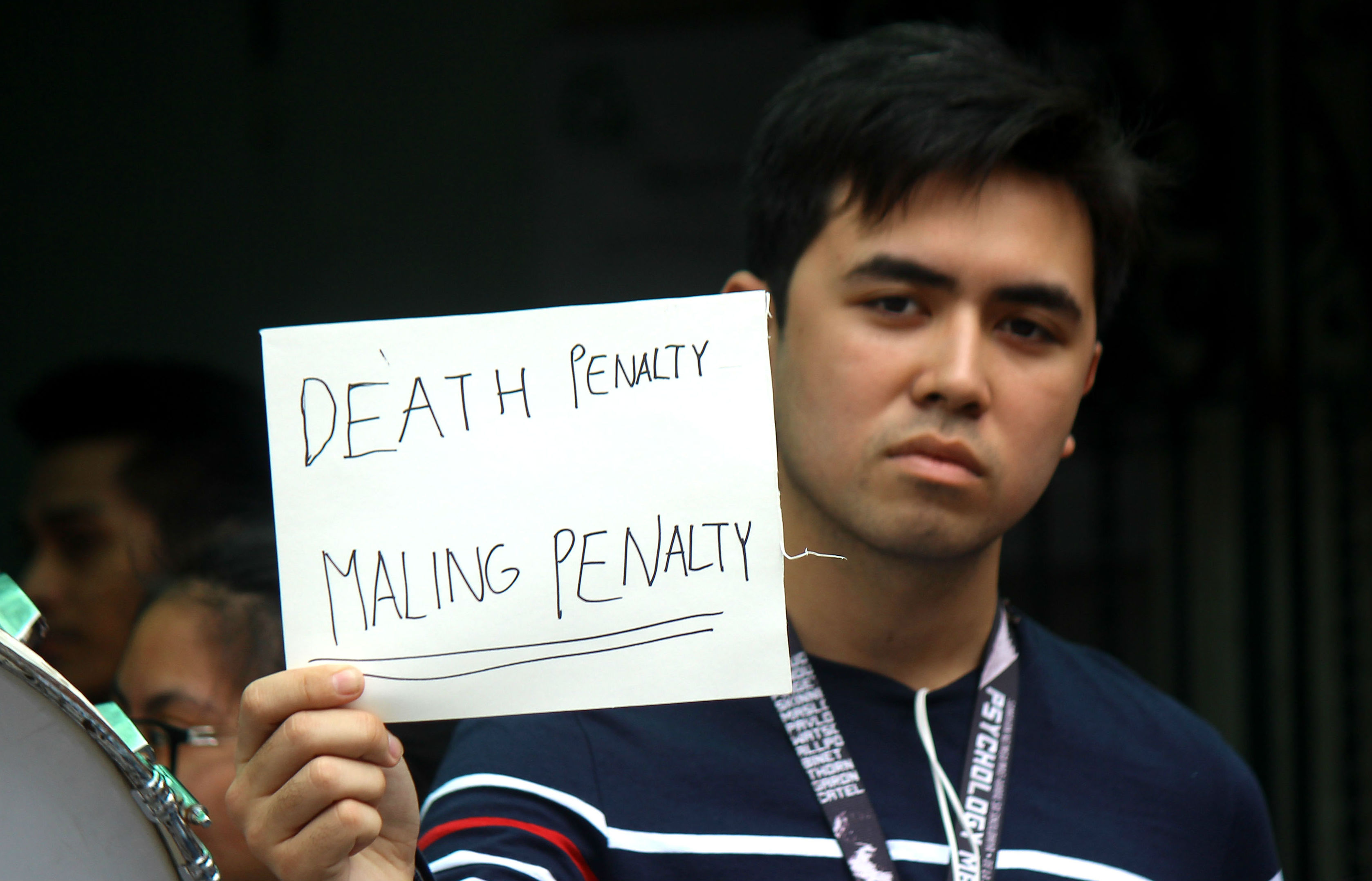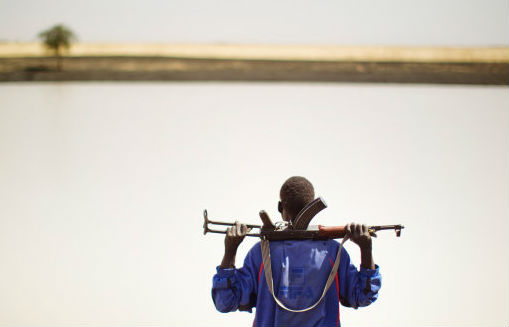The crisis in South Sudan is being fuelled by its leader's tribal alliances and attachment to power, a bishop from the country has said while revealing that a visit from Pope Francis and the Archbishop of Canterbury could happen in October.
“We are told it [the visit] should take place in October, but the dates are not fixed,” Bishop Erkolano Tombe said in an interview with The Tablet. “If the war-makers listen then it should bring peace. Our problem is that these people don’t like to listen because they are attracted to power."
The 73-year-old Bishop of Yei was in Rome this week for meetings with senior figures from Caritas, the Church’s global charitable arm, who have been helping deliver food to starving communities in South Sudan.
Across the country, 5.8 million people are in need of food aid and more than 2.3 million have been forced to flee their homes as a result of the conflict. But aid experts say the problem is largely man-made. Oil-rich South Sudan, which became independent in 2011, descended into civil war in December 2013 when a dispute between President Salva Kiir and his sacked deputy Riek Machar escalated into fighting, often on tribal lines.
“One thing is clear for about the South Sudanese leadership: power - economic power - is at the base of all these quarrels,” Bishop Tombe, who is the President of Caritas South Sudan, said. “Instead of using this power at the service of people, they want to serve their own groups; it is a closed kind of power, not inclusive of everyone.”
The country, he pointed out, is effectively being run by the Dinka council of elders, the tribe to which President Kiir belongs. Resentment has built up against the Dinka because many of the government forces committing atrocities in the country are from that tribe.
“He [the president] is personally a good man but he’s possessed by his group,” Bishop Tombe said. “They are running the country and he has nowhere to go. He has nowhere to escape because they have threatened him, and maybe they are benefitting from his leadership.”
The ethnic alliances, he explained, was turning a “national issue into a tribal issue” and while Macher could be a better leader of the country: “if he gets into power he may be worse.”
Bishop Tombe said the situation in his home diocese is desperate with 100,000 people trapped in the city of Yei, where roads had been blocked off meaning food cannot be transported through. The bishop added that emergency supplies delivered by the United Nations’ World Food Programme and Caritas were now running out. Reports on the ground say that people are being forced to eat water lilies to survive while people trying to harvest their crops have been shot on suspicion that they are rebels.
“Yei is starving” he explained. “We have appealed to the world food programme and to Caritas: there is famine.”
Bishop Tombe explained that after fighting erupted inside Juba’s presidential palace last summer, President Kiir allegedly attempted to arrest Machar.
Government forces - many of whom are Dinka people - set about a scorched earth policy of torching and looting villages allegedly loyal to Machar, while rebels retaliated by throwing up barriers in an attempt to stop the army getting supplies.
“When any of these groups attacked the government army, the response of the army was beyond measure,” Bishop Tombe said. “The armed groups had run away but the army took against the whole village: they pillaged, looted and burned houses.”
An historic visit to South Sudan from the Pope and Archbishop Justin Welby is currently being studied by both the Vatican and Lambeth Palace with sources saying it is likely to be a short, one day trip.
“Most of us are Catholics, followed by the Anglicans who are the second largest group,” Bishop Tombe explained. “They are Christian people of faith and they want the Pope to come, they want the Archbishop of Canterbury to come.”
He added: “This is something worthwhile, it's very important, it's encouraging people to realise that in their suffering they are not alone. Even the Pope and the Archbishop of Canterbury are with them. The whole world is with us, and it encourages us.”
Country analysts say a peaceful intervention is needed as much as food, arguing that the “grim outlook” in South Sudan will continue if “if the world continues sending food without stopping bullets”.
The South Sudanese bishops have made repeated calls for the country’s warring parties to lay down their weapons, although Bishop Tombe is concerned the appeals are falling on deaf ears.
“The message of the Church is that we need a negotiated peace, a dialogue. Let the rebels talk to the government so that they reinstate peace back to the nation,” he said. “But I don’t see the end of the tunnel of when this war is going to end. Right now, I don’t see it.”
The worry for Bishop Tombe, he explained, is the effectiveness of the Church’s intervention: talking to the country’s leaders is futile if “they are giving orders to these boys to go and kill and rape and destroy,” he said.
PICTURE: A man stands guard with an AK47 Rifle beside a watering hole in northeastern South Sudan. The region has been wracked with violent ethnic conflict as forces loyal to the president have attacked villages allegedly loyal to his rival, Machar.




 Loading ...
Loading ...